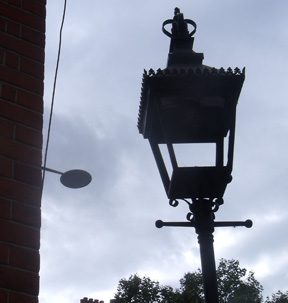The Government has announced extra funding for policing as part of the provisional police funding settlement. Police and Crime Commissioners (PCCs) will receive £7.8 billion in general Government grants, £161m more than the previous year.
The council tax referendum threshold will be £24 for a Band D property. If PCCs ask households to contribute an extra £2 a month, this would generate around £510m extra.
Home Secretary Sajid Javid described it as ‘a significant funding settlement that provides the most substantial police funding increase since 2010, with more money for local police forces, counter terrorism and tackling serious and organised crime.
“It will enable the police to recruit more officers and be better placed to respond to the increasingly complex crimes they face.”
Some £175m is going into the Police Transformation Fund, for new crime prevention techniques and a new national welfare service for front line officers, and £495m for national police technology. The £161m of general government grants for PCCs includes an extra £14m specifically for the Metropolitan and City of London police forces.
Comments
For Labour, Andrew Gwynne, Shadow Communities and Local Government Secretary, responding to the Local Government Finance Settlement, complained of an inflation-busting increase in council tax, and no end in sight for austerity. At the police rank and file body the Police Federation, National Chair John Apter welcomed the extra cash but said the Government ‘had to be honest about what it actually means.’ He said: “The truth is that this appears to be a quick fix. A sticking plaster solution that injects extra money in the short term, but one which sees the burden falling unfairly on local council tax payers.
“They are passing the buck of funding the police service to the public by doubling the council tax precept that Police and Crime Commissioners (PCCs) are allowed to charge.”
Any extra cash raised this way should be strictly ring-fenced for local policing, he said. “Every penny of this extra council tax precept must go into local policing to help keep communities safe,” he said. He accused the Government of ignoring the ‘bigger elephant in the room’; calling it a stand-still policing budget – it will plug the gap to a degree but householders are unlikely to experience a tangible improvement in their area’.
National Police Chiefs’ Council Lead for Finance, Chief Constable Dave Thompson said: “Police forces have made substantial savings and delivered reform over the past several years. We will continue to drive the efficiencies and innovation so we make the best use of our resources. However, there has been widespread recognition, including from government, that policing and our service to the public has come under severe strain due to budget cuts and increasing violence and terrorism.
“The Government is right to recognise the serious pressures on policing mean we could not wait for a full spending review and further funding is needed now. The additional funding through the police grant will help forces meet the costs of government pension changes and should allow chief constables and police and crime commissioners to avoid making further cuts. Increased flexibility through the council tax precept will give chief constables and police and crime commissioners the opportunity to address local issues – with many focusing on violent crime.
“We are continuing to work with police and crime commissioners and the Home Office to make an evidence-based case for increased investment and plans to drive productivity across policing for the next government spending review.”
Derbyshire’s Police and Crime Commissioner Hardyal Dhindsa, proves his longstanding argument that austerity-driven cuts have gone too far for too long.
He said today: “True, we appear to be receiving £12.4m more than last year, but I believe that the majority of this uplift should come from Central Government in the form of grant funding. However, the Government clearly expects local people to pick up the increase.
“And, to be absolutely clear, this is not a £12.4m bonanza. Three-quarters of this is already committed. This means at best I have £4m to spend on operational frontline policing and only if I raise council tax precept by £24 per year.
“If the Government’s plans get the go ahead, the amount of council tax paid towards policing in Derbyshire, currently at £192.60 a year for a Band D property, will rise to £216.60 per annum.
“There is no doubt that this money is much needed. Derbyshire’s police funding has fallen by £40m in real terms since 2010. We have lost over 400 officers and a further 400 members of staff. Crime is going up after years of reductions. It is a toxic cocktail.
“True, the problems in Derbyshire are not nearly as bad as other areas. In fact, Derbyshire is one of the safest places according to Government statistics.
“But, and I’m pretty sure I speak for all our residents, I would like it to stay that way. People tell me they want more visibility, more technology alongside a greater focus on online crime, on hate crime or child sexual exploitation. Well, the only way we can do all that and more besides is if we have more money to do it with.
“It’s also important to point out that this money will not dissolve the current problems overnight. It will take years to undo the damage of the last few years.
“Cutting crime costs. Keeping people safe costs. And I have pledged to do both of those to the best of my ability. The Government’s plan is not the way I would have chosen to raise this essential funding, but I don’t believe we can afford to be choosy.”










